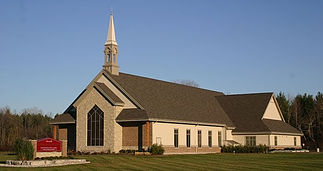Synod Dunnville 2016 (3)


I’ll make two remarks about the latest set of Provisional Acts (which you can find here).
The other day I used the word “boilerplate” in reference to the Acts of the first day. Perhaps I sent some of you scrambling for a dictionary. “Boilerplate” is a term often used in the legal world to refer to standard wording. If the same wording gets used repeatedly in all kinds of documents (like contracts), you might hear it referred to as “boilerplate.” It’s not a derogatory word, just descriptive. The word came to mind again as I reviewed the latest Acts, especially articles dealing with the Reformed Church of Quebec (art. 59), Reformed Church in the United States (art. 60), and the Orthodox Presbyterian Church (art. 61). In each case, there have been concerns expressed in the past about what we used to call “divergences” — a fancy word for different views and practices. Past committees have been mandated to discuss these. Some churches feel that these discussions should go on. Synod 2016 disagrees. In each of the aforementioned articles, you read this boilerplate in the adopted decisions:
Rule 1 of Ecclesiastical Fellowship states that “the churches shall assist each other in the maintenance, defence and promotion of the Reformed faith in doctrine, church polity, discipline and liturgy, and be watchful for deviations.” Within this context, there is always room for discussion about differences in matters of doctrine and practice.
When we enter EF, we accept each other as faithful churches without qualification. Differences that were noted and discussed prior to EF but which did not hinder entering EF, do not require resolution. It is incorrect to speak of “outstanding differences.” The word “outstanding” implies a need for resolution. Bringing up these issues repeatedly, without proper proof of necessity, is potentially damaging to the sister-church relationship. Discussion of these issues may take place naturally in the course of EF, but a specific mandate, identifying particular issues, need not be given.
As I see it, there is a subtext behind past mandates to continue discussing these differences. The subtext was: we have to keep discussing these things until they see things our way. The above-quoted boilerplate is an explicit rejection of that subtext.
Another interesting item in these Acts is the mention of creation as a concern of the ERQ and RCUS. The CCCNA had discussions with their ERQ counterparts about “the interpretation of Genesis 1 and 2 in the CanRC.” They also affirmed to the ERQ that the CanRC “has not adopted any statements regarding the doctrine of creation.” In discussions with RCUS, it “was acknowledged that some in the CanRC are looking for room within the confessions for views other than a literal six-day sequence of creation.” Sister churches are taking note of what’s happening with the doctrine of creation in the CanRC, at least in certain corners.


